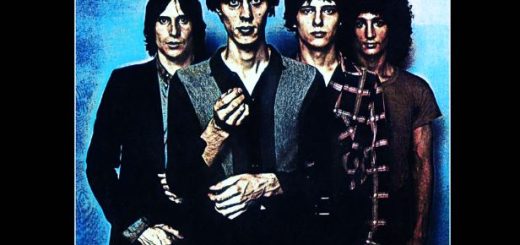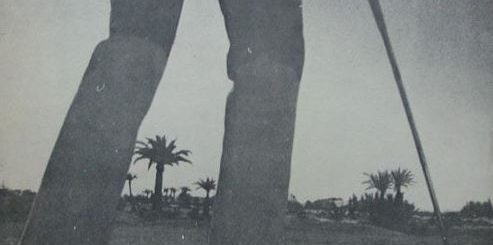See No Evil by Television Lyrics Meaning – Deciphering the Punk Rock Paradox
Lyrics
And it’s a whole lot more than “anyhow”
I wanna fly, fly a fountain
I want to jump, jump, jump, jump a mountain
I understand all (I see no)
Destructive urges (I see no)
But it seems so perfect (I see no)
I see, I see no
Evil
I get ideas, I get a notion
I want a nice little boat made out of ocean
I get your point, you’re so sharp
Getting good reactions with your evil talk
I understand all (I see no)
Destructive urges (I see no)
It seems so perfect (I see no)
I see, I see no
Evil
Don’t say unconscious, no, don’t say doom
Well, if you got to say it, I’ve got to leave this room
‘Cause what I want, I want now
And it’s a whole lot more than “anyhow,” get it?
I understand all (I see no)
Destructive urges (I see no)
It seems so perfect (I see no)
I see, I see no
Evil
I’m running wild with the one I love (I see no evil)
I’m going crazy with the one I love (I see no evil)
I keep on dancin’ with the one I love (I see no evil)
You control the feelings of the one you love (I see no evil)
You control the feelings of the one you love (I see no evil)
You can feed the fires of the one you love (I see no evil)
You pull down the future with the one you love (I see no evil)
You pull down the future with the one you love (I see no evil)
You pull down the future with the one you love (I see no evil)
You pull down the future with the one you love (I see no evil)
You pull down the future with the one you love (I see no evil)
You pull down the future with the one you love (I see no evil)
In a swirling vortex of guitar riffs and lyrical echoes, Television’s ‘See No Evil’ emerges as an emblematic manifesto of punk rock’s nuanced philosophy. In the vein of poets sporting leather jackets, Tom Verlaine and his band crafted a song that, while it wears a sheen of insouciance, unpacks multitudes on a closer listen.
Released in 1977 as part of the iconic album ‘Marquee Moon,’ ‘See No Evil’ gyrates on the fine line of rebellion and insight, thundering out a message that’s as vital today as it was in the heyday of CBGB’s sticky floors. Let’s dive headlong into the torrent of meaning behind these terse, punchy verses.
Distilling Desire: Unpacking the Yearning for More
The chorus of wants tears through the opening lines like a howl in the urban night—’What I want, I want now.’ The immediacy is palpable, mirroring a generation’s impatience and the gnawing hunger for profundity in a desert of the superficial. Verlaine isn’t just singing about acquisition; he’s aiming for existential heights—flying fountains, jumping mountains. It’s an ambition that transcends materialism and borders on the spiritual.
In this plea for the extraordinary, ‘See No Evil’ captures the escapism inherent in the human spirit, especially in the throes of societal upheaval. Television isn’t content with what’s handed down by the powers that be; they clamor instead for a reality reshaped by dreams, by the primal urge to leap beyond the confines of the given world.
The Edge of Sharpness: Wit Meets Cynicism
Verlaine’s deft wordplay with ‘I get your point, you’re so sharp’ slices into the cultural fabric with precision. The line is a smirking nod to the intellectual posturing prevalent amidst societal commentary—a double-edged sword that critiques while it is itself subject to critique. The phrase ‘Getting good reactions with your evil talk’ is delivered with a knowing bite; Television rebuffs the status quo while acknowledging their entanglement with it.
The band seems to run their fingers on the edge of a knife, toying with the dangerous allure of rebellious ideas while cautioning against their seductive pull. The song suggests that the very commentary on the ‘evil’ around us can be a malevolent force in its own right, creating a feedback loop that entrenches rather than uproots.
I See, I See No Evil: The Anthem’s Stark Oxymoron
The recurring phrase, ‘I see, I see no evil,’ sits like a Zen koan at the center of the song. The juxtaposition of sight and blindness to malevolence toys with the notorious ‘hear no evil, see no evil, speak no evil’ adage. In claiming to understand all while seeing ‘no evil,’ the song reveals the duplicity of awareness and intentional ignorance.
Perhaps it’s a commentary on the vaunted ideal of objectivity, or a reflection of personal or societal delusion. Television paints a picture of a protagonist both enlightened and blinkered, who reconciles the destructive undercurrents of his wishes with an almost blissful denial of their darker implications.
The Seductive Serenade: Control and Affection
Love intermingles with control and destruction in a heady brew as the singer admits to ‘running wild with the one I love.’ There’s a tantalizing tension between surrender and domination, echoed in the lines about controlling and feeding the fires of the beloved. The song insinuates that the relationships we treasure are rife with the potential for both salvation and damnation.
Television invites listeners into this intimate dance with anarchy, where the future can be pulled down or built up in the throes of passion. The mantra-like repetition emboldens the sentiment, sparking a rebellion that is personal as much as it is political—a dual flame igniting hearts and societal structures alike.
The Psychedelic Prophets: Interpreting the Ethos of an Era
Sitting squarely at the dawn of punk’s blistering takeoff, ‘See No Evil’ harnesses the raw energy that would define a genre and an attitude towards life. It unpacks the ethos of confrontation and subversion while also critiquing the very ground it treads. The song is a time capsule and a timeless declaration, espousing a viewpoint that we’re still unravelling decades later.
Pioneers like Television didn’t just play music; they crafted statements about perception and existence wrapped in chords and chorus lines. ‘See No Evil’ is a testament to this legacy—an intricate labyrinth of poetic rebellion that invites introspection with every riff and refrain.








